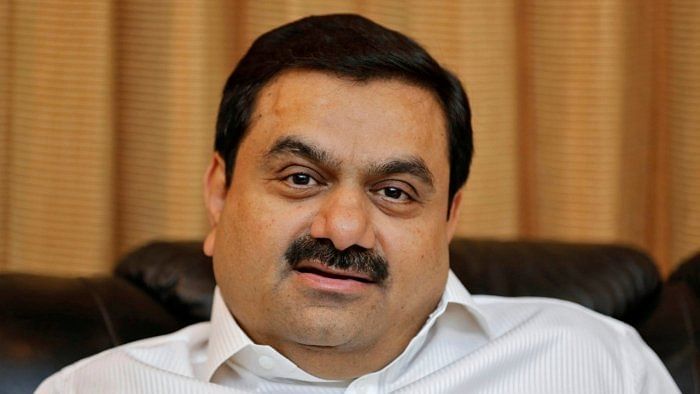
By Menaka Doshi and Saikat Das
India’s largest life insurer is plowing more money into Gautam Adani’s flagship unit, undeterred by a short seller’s fraud allegations that wiped out more than Rs 4,08,122 ($50 billion) of the conglomerate’s market value in two sessions.
State-controlled Life Insurance Corp. of India is spending about Rs 302 crore ($37 million) as an anchor investor in a Rs 20,406 cr ($2.5 billion) new share sale by Adani Enterprises Ltd., according to a filing. The investment would add to its current holding of 4.23 per cent.
Also Read | Adani kicks off $2.45 bn share sale while under short-seller attack
LIC’s investment signaled its vote of confidence in Asia’s richest man and his beleaguered group on Jan. 25, which is facing its toughest test yet after US-based Hindenburg Research in its report earlier this week characterized its meteoric rise as “the largest con in corporate history.” LIC is among 33 institutional investors coming in as anchors in the FPO, along with names such as Abu Dhabi Investment Authority and Al Mehwar Commercial Investments LLC.
While the amount Mumbai-based LIC is investing is relatively tiny — considering it has almost Rs 43 lakh crore of assets under management at LIC — it marks a contrarian position to other domestic financial institutions that have little to no Adani investments. It also comes in the face of a contagion that hit stocks exposed to Adani Group, including LIC that plunged the most in more than a month on Friday in Mumbai.
“LIC thinks contrarian,” said Arun Kejriwal, founder of Kejriwal Research & Investment. “It has always minted money whenever there is market volatility. It doesn’t receive money for short duration. It acts as long-only fund.”
An email and text messages sent to the LIC chairman seeking comments on its Adani Group investments were not immediately answered.
With over 250 million policy holders across India and assets under management as large as the nation’s mutual fund industry, LIC is among India’s systemically most important institutions. Its exposure to the Adani Group, known to be closely aligned to Prime Minister Narendra Modi’s development goals, is also symbolic of the tycoon’s political clout.
LIC is an investor in five Adani companies, with stakes ranging from 1 per cent to 9 per cent that was worth a total of Rs 77,268 crore on Jan. 24 — just before the Hindenburg report was published.
No other Indian insurance company has any significant holding, as per December 2022 data filed with stock exchanges. Most mutual funds have largely stayed away from the group, despite some wild rallies seen by some of the stocks. Adani Enterprises for instance, surged over 1,900 per cent in the last five years, trumping even the likes of Elon Musk’s Tesla Inc.
The high exposure of state-backed financial institutions “has implications for financial stability” and for the millions of Indians “whose savings are stewarded by these pillars of the financial system,” Jairam Ramesh, a lawmaker with the opposition Indian National Congress party, said in a statement Friday.
Adding Weight
The sell off triggered by Hindenburg’s report may now be adding more weight to such concerns. The rout deepened Thursday, with some units like Adani Green Energy Ltd. and Adani Total Gas Ltd. tumbling by their daily limit of 20 per cent. Adani Enterprises fell 19 per cent.
The short seller has alleged that Adani Group was involved in “brazen” market manipulation, accounting fraud, used offshore shells for money laundering and siphoned from listed companies. The conglomerate has dismissed the report as “a malicious combination of selective misinformation and stale, baseless and discredited allegations.” It said it’s also exploring legal action.
Last week, Adani Group Chief Financial Officer Jugeshinder Singh acknowledged the lack of interest shown by domestic institutional investors.
“We understand mutual funds missed Adani growth stock rally,” he said at a press briefing. “We should have communicated to mutual funds.”